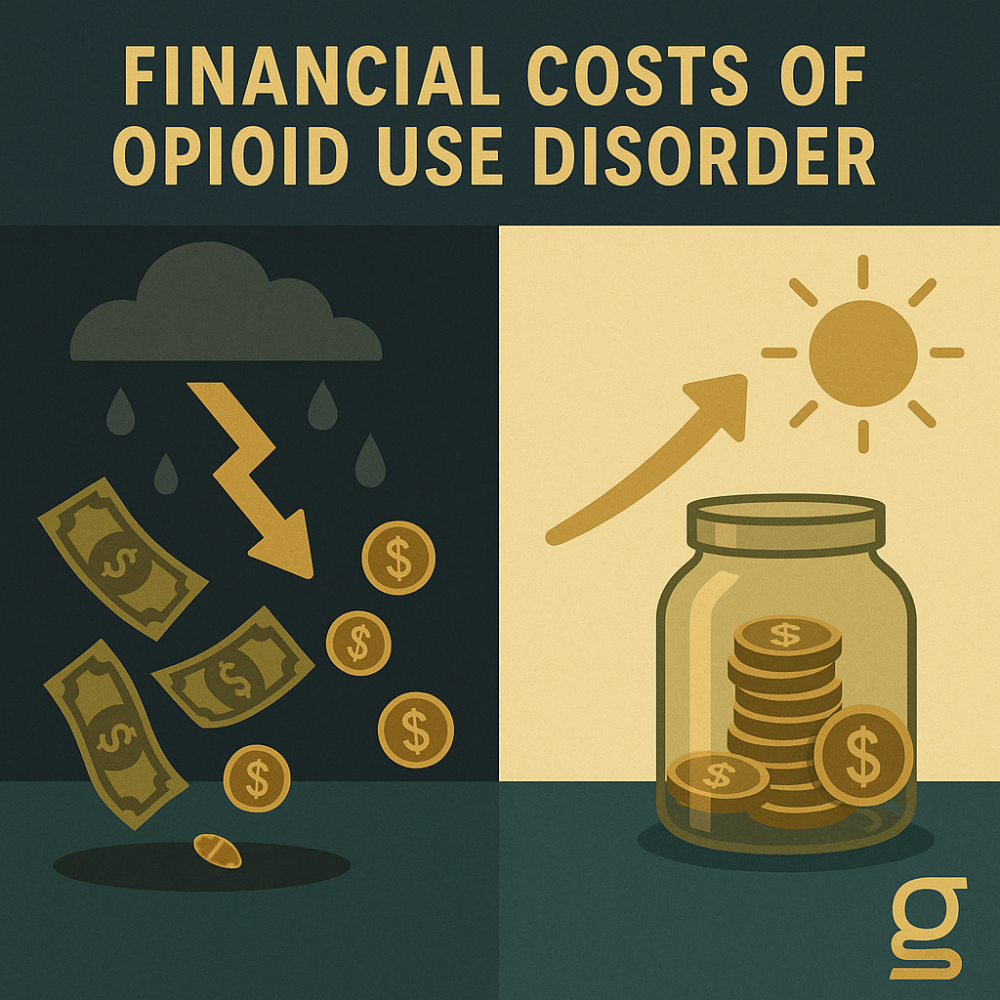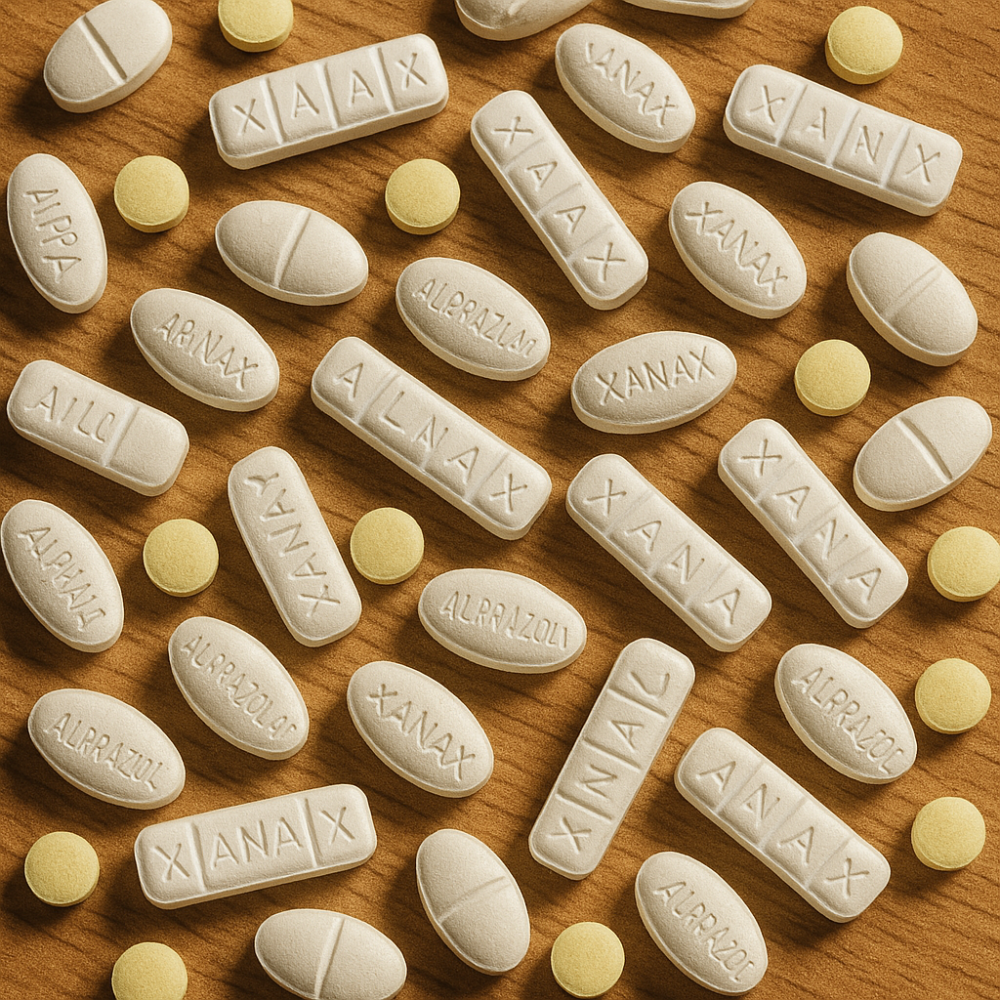Substance use disorder (SUD) is a pervasive public health concern that affects demographics of all ages, including adolescents, genders, and backgrounds. It refers to the misuse or dependence on substances such as drugs or alcohol, leading to significant impairment in various aspects of life.
Among the many consequences of SUD, one of the most alarming is the association between SUD and suicide. The relationship between substance use and suicidal behavior is intricate and multifaceted, necessitating a comprehensive approach to tackle both issues simultaneously.
Understanding Substance Use Disorder (SUD)
Definition of SUD
Substance use disorder, as defined by the Diagnostic and Statistical Manual of Mental Disorders (DSM-5), is a chronic brain disorder characterized by the compulsive use of substances despite negative consequences.
It is diagnosed based on specific criteria, including impaired control, social impairment, risky use, and pharmacological indicators. Substance use disorders can include alcohol dependence, drug dependence, opioid use disorders, and more.
Prevalence of SUD
SUD affects millions of individuals globally, cutting across different age groups and socioeconomic backgrounds. The prevalence of SUD varies depending on the substance in question, with alcohol and opioids being significant contributors. It is crucial to recognize the widespread nature of SUD to implement effective prevention and treatment strategies.
Factors Contributing to SUD
The development of SUD is influenced by various factors, including genetic predisposition, environmental influences, and individual vulnerabilities.
Genetic factors play a role in the risk of developing SUD, while environmental factors such as exposure to substance use, trauma, and peer influence also contribute significantly. Additionally, underlying mental health issues may increase the likelihood of developing SUD.
Link Between Substance Use Disorder and Suicide
Statistics on Suicide Among Individuals With SUD
The connection between SUD and suicide is distressingly strong. 22% of suicides involve intoxication, and opiates are present in 20% of suicides in the United States.
Studies consistently show elevated rates of suicide, suicide attempts, and suicidal ideation among individuals with SUD. In fact, suicide is a leading cause of death among people who misuse alcohol and drugs. The risk of suicide is particularly heightened during periods of intoxication, withdrawal, or acute substance-related crises.
Underlying Factors Connecting SUD and Suicide
Several underlying factors contribute to the link between SUD and suicide deaths. The chronic and debilitating nature of SUD can lead to feelings of hopelessness, despair, and a sense of being trapped in a cycle of addiction. Co-occurring mental health issues, such as depression and anxiety, or behavioral health problems further exacerbate the risk of suicidal behavior.
Risk Factors for Suicide in Individuals with SUD
Co-occurring Mental Health Disorders
Individuals with SUD often experience co-occurring mental health disorders, such as depression, bipolar disorder, post-traumatic stress disorder (PTSD), or other psychiatric disorders. The presence of these disorders amplifies the risk of suicide, necessitating comprehensive evaluation and treatment of both SUD and mental health conditions.
Access to Lethal Means
Easy access to lethal means, such as firearms or prescription drugs, significantly increases the risk of completed suicide. Individuals with SUD may be particularly vulnerable to impulsive and desperate acts, making it crucial to limit access to these means and promote safe storage practices.
Social Isolation and Lack of Support
Social isolation and a lack of support networks contribute to the increased risk of suicide among individuals with SUD. Feelings of shame, stigma, and alienation often accompany addiction, making it vital to address these factors through social support programs, therapy, and community engagement.
Intervention and Prevention Strategies
Integrated Treatment Approach
Effective intervention requires an integrated treatment approach that addresses both SUD and co-occurring mental health disorders. Coordinated efforts between healthcare professionals, addiction specialists, and mental health providers can optimize outcomes and reduce the risk of suicide.
Suicide Risk Assessment and Management
Routine suicide risk assessment should be an integral part of SUD treatment programs. Identifying individuals at increased risk of suicide allows for timely intervention and the implementation of safety measures. Comprehensive suicide risk management plans, including safety planning and crisis helplines, are essential to ensure the safety and well-being of individuals with SUD.
Building Social Support Networks
Promoting social support networks is crucial in preventing suicide among individuals with SUD. Peer support groups, family involvement, and professional counseling can provide a sense of belonging, encouragement, and guidance throughout the recovery journey. Engaging in meaningful social activities and combating stigma also play vital roles in fostering supportive environments.
Role of Support Systems in Recovery
Having a strong support system is highly beneficial during the journey to recovery. Family, friends, peers, and counselors can be helpful in reducing the likelihood of relapse.
Family involvement
Family support is integral to the recovery process of individuals with SUD. Families can play a pivotal role in providing emotional support, encouraging treatment adherence, and participating in family therapy sessions. Education about SUD and its impact on mental health is vital to help families understand and respond to their loved ones’ needs effectively.
Peer support groups
Peer support groups offer a unique source of understanding and encouragement for individuals with SUD. Sharing experiences, learning coping strategies, and developing a sense of community can enhance recovery outcomes and reduce the risk of suicide. Participation in peer support groups should be actively promoted and made accessible.
Professional counseling
Professional counseling, including individual therapy and group therapy, is an essential component of SUD treatment. Therapists provide guidance, help individuals develop coping mechanisms, and address underlying issues contributing to SUD and suicidal ideation. The availability of affordable and accessible counseling services is crucial for effective support.
Overcoming Stigma and Barriers to Treatment
Recognizing and Challenging the Stigma
The stigma surrounding SUD often acts as a barrier to seeking help and receiving appropriate treatment. Raising awareness, educating the public, and challenging stigmatizing attitudes can help reduce the shame associated with addiction and encourage individuals to seek the support they need.
Improving Access to Treatment
Access to comprehensive and evidence-based treatment is crucial in addressing SUD and preventing suicide. Removing barriers such as financial constraints, geographical limitations, and long wait times is essential. Expanding the availability of treatment centers, improving insurance coverage, and integrating SUD services into primary healthcare settings are steps in the right direction.
The Future of Substance Use Disorder-Linked Suicides
The connection between substance use disorder (SUD) and suicide is a pressing concern that requires immediate attention. Understanding the complex factors underlying this link, implementing intervention and prevention strategies, and fostering supportive environments are crucial steps toward reducing the risk of suicide among individuals with SUD.
By integrating mental health care, promoting social support networks, and combating stigma, we can pave the way for recovery, hope, and a brighter future. If you or a loved one are battling with Substance Use Disorder, reach out to us today to learn about our addiction treatment programs.
Substance Use Disorder and Suicide FAQs
1. Is substance use disorder (SUD) always linked to suicide?
While there is a high risk of suicide among individuals with alcohol use disorder or another drug use disorder, it is important to note that not everyone with SUD will experience suicidal thoughts or engage in suicidal behavior. However, the risk is significantly elevated compared to the general population.
2. Can treatment for SUD alone reduce the risk of suicide?
Treating SUD alone may not completely eliminate the risk of suicide. It is crucial to address co-occurring mental health disorders, provide comprehensive support, and implement suicide risk assessment and management strategies to effectively reduce the risk of suicide.
3. How can friends and family help someone with SUD and suicidal ideation?
Friends and family can provide crucial support by actively listening, encouraging treatment, and helping the individual access professional help. Creating a non-judgmental and supportive environment despite their destructive behaviors is essential in promoting recovery and reducing the risk of suicide.
4. Are there any warning signs that someone with SUD may be at risk of suicide?
Suicidal behavior and predictors in individuals with SUD may include expressing feelings of hopelessness, talking about death or suicide, thoughts of suicide, increased substance use, withdrawing from social activities, and giving away personal belongings. If you notice any of these signs, it is important to seek professional help immediately.
5. Where can individuals find resources and support for SUD and suicide prevention?
There are various resources available, including helplines, support groups, and treatment centers specifically dedicated to SUD and suicide prevention. Organizations such as the National Suicide Prevention Lifeline and Substance Abuse and Mental Health Services Administration (SAMHSA) can provide valuable information and assistance.


 Steve B
Steve B 

 Casey Wilson
Casey Wilson